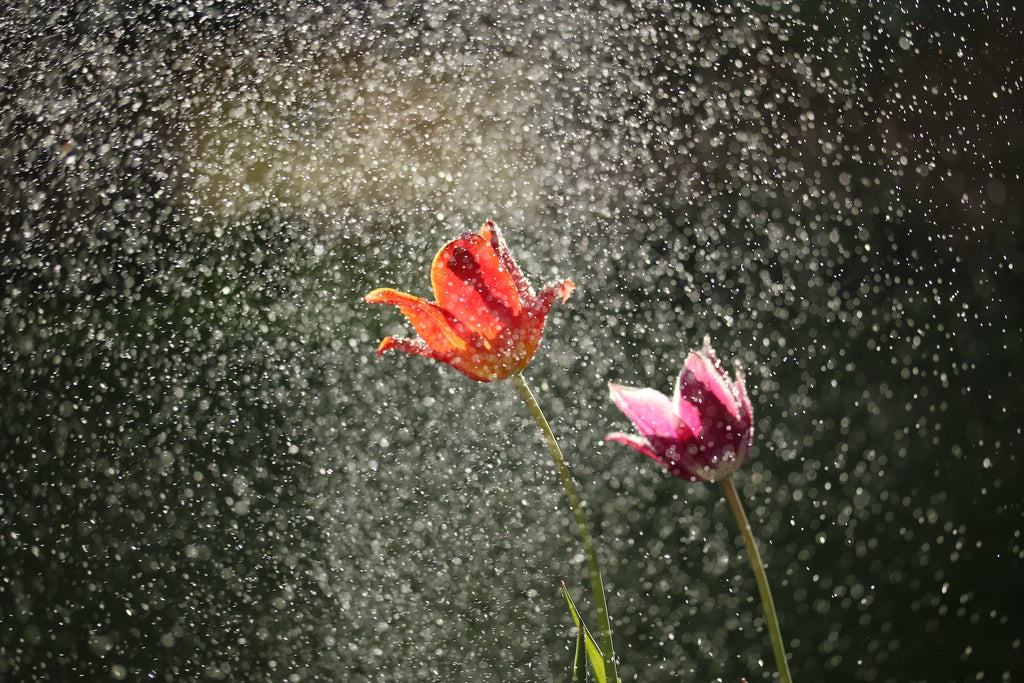You may have heard a rising tide lifts all boats. But what happens when the water runs out? A recent United Nations report estimated five billion people — about two-thirds of the global population — could face at least one month of water shortages by 2050. World Water Day, which happens March 22, was established by the UN to bring attention to the plight the planet faces without sustainable freshwater management. The good news? There are steps everyone can take to help conserve and maintain this vital resource. After all, we live on a blue planet — water is life.
At SaltyLama, we recognize the importance of our oceans and waterways. Our eco-friendly laundry detergent strips are safe for the health of humans, animals, and the environment. Chemicals from traditional detergents end up in our waterways, damaging ecosystems along the way — some are even lethal to aquatic species.
Because our laundry sheets are plant-based, they contain none of these harmful agents. No phosphates, which can create algae blooms, or surfactants, which are toxic to animal life. And no dyes, formaldehyde, or brighteners, either. Switching from traditional detergents to a non-toxic, plant-based, and cruelty-free alternative is just one of the ways you can help protect the planet. How else can you help to turn the tide on the world’s growing water crisis? Read on.
Why water is growing scarce
There’s no single factor creating this crisis. As with a lot of issues, it’s a combination of elements — all human-made — that are leading to potentially catastrophic consequences. Chief among them is climate change, which is creating more extreme weather, including floods and droughts. Another cause? Pollution from mining and manufacturing, which can contaminate rivers and lakes. And agriculture is a factor since it accounts for about 70% of global water consumption. As the population grows, so does demand for food and water.
What’s at stake
In a word: everything. When people run out of drinking water, they’ll turn to contaminated sources, potentially contracting and spreading diseases. That means more potential pandemics. No water means no food, which could create crippling starvation. And while human life is at risk, don’t forget about the animals who need water to survive.
What you can do to conserve water
Small acts can make a huge difference. So, consider these 10 simple household steps you can take to help tackle the world’s water crisis:

Take shorter showers: An average shower takes two to three gallons a minute, so cut your soak short.
Go with the low-flow: Installing low-flow showerheads and other fixtures will save both water and money. So will putting in a water-efficient toilet. Older toilets can use five or six gallons with every flush. New models reduce that number by more than half.
Grow native plants: When you’re introducing new trees or plants to your backyard, pick species indigenous to your area. Because they belong here, they’ll need less water. Better still, they will probably also attract local wildlife, making your outdoor space that much more attractive.

Fix leaks: Again, little things add up. Did you know a faucet that leaks one drop every second amounts to more than 3,000 gallons of water in a year? So, check your pipes and faucets. A little handiwork around the house will save you water — and money.
Don’t pollute: Don’t hose oil or other toxic materials into storm drains. Instead, use sand to absorb any such waste and then dispose of it in the trash. That also goes for when you’re washing your car or fertilizing your lawn. Down the drain leads into local waterways.
Get rid of your lawn: Grass consumes a tremendous amount of water. Replacing it with xeriscaping, in which you install rocks or sand, is a popular alternative. You can also opt for turf — preferably one made from recyclable material.
Water plants when it’s cooler outside: The hotter it is, the faster water evaporates. So instead of watering your plants when the sun is high, do so in the early morning or evening hours. The water will then be more thoroughly absorbed into the soil.
Help local conservation efforts: Away from your home, there are plenty of other ways to contribute to the cause, including championing for conservation policies in your community.

Collect rainwater: Looking to cut your water bill, reduce water wastage, and keep your garden irrigated? Harvest the rain. It’s not complicated — a simple rain barrel should be all you need. Then use this water to care for your plants.
Cut your carbon emissions: What does reducing your carbon footprint have to do with conserving water? Since climate change is one of the chief causes of water scarcity, taking steps to cut your emissions — riding a bike to work rather than driving, for example — will make a positive difference in the worldwide effort to keep this life-giving resource from evaporating.

